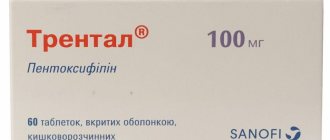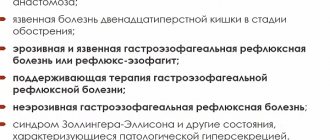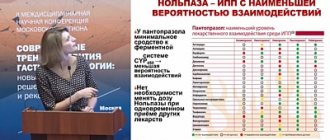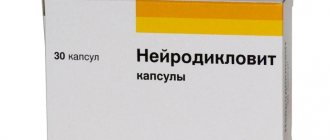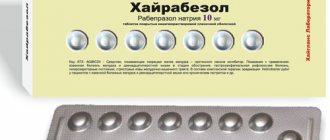Aspirin is a popular drug in the category of non-steroidal anti-inflammatory drugs. It is also used for the prevention of diseases of the cardiovascular system. There is one persistent myth that aspirin thins the blood and is indicated for the prevention of cardiovascular diseases. However, this is not entirely true. Aspirin affects blood clotting and, as a result, the process of thrombus formation. But the thickness of the blood is affected by the amount of hemoglobin and red blood cells. The lower their value, the more liquid the blood in the body.
In this article we will consider in detail the drug aspirin cardio. How does it differ from the usual simple aspirin, what effect does it have on the body and cardiac activity in particular.
Pharmacological properties of the drug Aspirin Cardio
NSAIDs of the salicylate group are used as an inhibitor of platelet aggregation. Acetylsalicylic acid, the active ingredient of the drug, has an antiplatelet effect when used for a long time in low doses. The main mechanism of action of acetylsalicylic acid is non-selective inactivation of the COX enzyme, as a result of which the synthesis of prostaglandins, prostacyclins by endothelial cells (in doses of 300 mg) and thromboxane A2 in platelets is disrupted, which determines the antiplatelet effect of the drug Aspirin Cardio, preventing the development of thromboembolism. Acetylsalicylic acid may have other effects on the blood coagulation process, increasing fibrinolytic activity and reducing the concentration in the blood of vitamin K-dependent coagulation factors (II, VII, IX, X). Like other acetylsalicylic acid preparations, Aspirin Cardio has anti-inflammatory, antipyretic, and analgesic effects. After oral administration, acetylsalicylic acid is metabolized to form the main active metabolite, salicylic acid. Absorption of acetylsalicylic and salicylic acids in the gastrointestinal tract occurs quickly and completely after oral administration and depends on the dosage form of the drug. Thanks to the acid-resistant enteric coating of Aspirin Cardio, the active substance is released not in the stomach, but in the alkaline environment of the small intestine. Therefore, absorption of acetylsalicylic acid in an enteric coating occurs 3–6 hours later compared to taking the usual form of acetylsalicylic acid. The degree of binding to plasma proteins depends on the concentration and averages 49–70% for acetylsalicylic acid and 66–98% for salicylic acid. Acetylsalicylic acid is 50% metabolized during the first passage through the liver. Metabolites of acetylsalicylic and salicylic acids are glycine conjugate of salicylic acid, gentisic acid and its glycine conjugate. It is excreted in the form of metabolites mainly by the kidneys. The half-life of acetylsalicylic acid is 20 minutes (the rate of secretion depends on the dose; it increases with increase). Penetrates through the BBB into breast milk and is detected in synovial fluid.
Indications for use of the drug Aspirin cardio
To reduce the risk of death:
- in patients with suspected acute myocardial infarction;
- in patients who have suffered a myocardial infarction;
- transient ischemic attacks (TIA) and stroke in patients with TIA;
- morbidity and mortality in stable and unstable angina.
For prevention:
- thrombosis and embolism after vascular surgery (percutaneous transluminal catheter angioplasty (PTCA), carotid endarterectomy, coronary artery bypass grafting (CABG), arteriovenous bypass grafting);
- deep vein thrombosis and pulmonary embolism after prolonged immobilization (after surgery);
- myocardial infarction in patients with a high risk of developing cardiovascular complications (diabetes mellitus, controlled hypertension (arterial hypertension)) and persons with a multifactorial risk of cardiovascular diseases (hyperlipidemia, obesity, tobacco smoking, old age, etc.).
For secondary prevention of stroke.
How can aspirin prevent a heart attack?
Aspirin prevents blood clotting. When bleeding, special blood cells - platelets - seal the hole in the blood vessel and stop the bleeding.
Similar processes involving platelets can also occur in the vessels that supply the heart with blood. If the coronary vessels are affected by atherosclerosis, a blood clot may form in the area where atherosclerotic plaques form. If a clot blocks an artery, blood will stop flowing to the heart. This will cause a heart attack. Aspirin reduces the ability of platelets to stick together and form a blood clot. And therefore can prevent a heart attack.
Your doctor may suggest daily therapy with acetylsalicylic acid if:
- Have you already had a heart attack or stroke?
- You have not had a heart attack, but you have had coronary artery bypass surgery, or have chest pain due to coronary artery disease (angina), or have a stent placed in a coronary artery
- You are at high risk of having a heart attack if you have at least 2 of the following 4 symptoms: diabetes, age over 50, high blood pressure, and a smoker.
Prophylactic aspirin is indicated for people aged 50 to 59 years if there is no risk of bleeding and if the person has a greater than 10% risk of heart attack or stroke within the next 10 years. For adults younger than 50 years and older than 60 years, more research is needed to determine the benefits and risks of daily aspirin therapy.
Today, there is ongoing debate about the benefits of aspirin for people who have not had a history of a heart attack. But most experts agree that the higher your risk of developing a heart attack, the greater the chance that the benefits of taking a daily aspirin tablet will outweigh the harm of developing complications from aspirin therapy.
Use of the drug Aspirin cardio
For unstable angina, for the prevention of thrombosis and embolism after vascular surgery, for the prevention of transient cerebrovascular accidents and stroke at the stage of clinical warning signs, the recommended dose of acetylsalicylic acid is 100–300 mg/day. For better tolerability of the drug, a dose of 100 mg/day is preferable. The optimal time to start therapy with Aspirin Cardio after coronary artery bypass grafting is 24 hours after the operation. For acute myocardial infarction, the recommended dose of acetylsalicylic acid is 100–200 mg/day or 300 mg every other day. Aspirin Cardio is intended for long-term use; the duration of therapy is determined individually. Aspirin Cardio enteric-coated tablets should be taken whole with plenty of liquid. The maximum daily dose for adults is 1500 mg.
Medicine aspirin cardio
In addition to the fact that the drug belongs to the category of NSAIDs and has an antipyretic effect and analgesic effect, aspirin cardio is used in the primary prevention of diseases of the cardiovascular system and in the secondary prevention of myocardial infarction. Reduces the risk of developing the disease with unstable angina. The drug is prescribed for cardiovascular pathologies due to its antithrombotic effect.
The main difference between the drug and regular aspirin is that aspirin cardio is coated with a special enteric coating. Due to this, it is used for long courses in cardiology. This coating allows the active substance to be released in the intestines, thereby minimizing one of the main side effects of aspirin - damage to the gastric mucosa.
Composition of the drug
The active ingredient of the drug is acetylsalicylic acid.
Excipients include corn starch and cellulose powder.
The enteric coating contains polysorbate, sodium lauryl sulfate, talc and other compounds.
Thus, when prescribing the drug, individual intolerance to the components of the composition should be taken into account.
Release form and dosage
The drug aspirin cardio is available only in the form of enteric-coated tablets in dosages of 100 mg and 300 mg.
The number of tablets in a package can be: 20 pcs., 28 pcs., 56 pcs.
Side effects of the drug Aspirin Cardio
The most common are nausea, anorexia, pain in the epigastric region, microhemorrhages in the gastrointestinal tract; Sometimes, with long-term use of increased doses of the drug, erosive and ulcerative lesions of the gastrointestinal tract, gastric bleeding, accompanied by melena, are possible. In case of individual hypersensitivity to salicylates - allergic reactions in the form of skin rashes, urticaria, in patients with asthma - increased frequency of bronchospasm attacks; in isolated cases - impaired liver function, severe skin reactions up to the development of erythema multiforme; renal dysfunction, hypoglycemia.
Special instructions for the use of the drug Aspirin Cardio
Special warnings and precautions. In patients with allergic diseases (BA, hay fever, allergic rhinitis, urticaria, skin itching, swelling of the nasal mucosa), as well as in the case of their combination with chronic respiratory tract infections and in patients with hypersensitivity to NSAIDs during treatment with Aspirin Cardio is possible the appearance of bronchospasm attacks. When carrying out therapy, special attention should be paid to patients with a history of peptic ulcers of the stomach and duodenum, with constant complaints of pain in the stomach, impaired liver or kidney function, and heart failure. During long-term use of Aspirin Cardio in high doses, regular hematological monitoring (hemoglobin level and main indicators of the blood coagulation system) is necessary. Acetylsalicylic acid, even in low doses, reduces the excretion of uric acid from the body, which can cause an acute attack of gout in patients predisposed to uric acid diathesis. Long-term use of analgesics, especially in combination therapy with various drugs, leads to impaired renal function, including the development of nephropathy. You should inform your doctor about the use of Aspirin Cardio before surgical (or dental) intervention. Pregnancy and breastfeeding Prescription of acetylsalicylic acid in the first and second trimester of pregnancy should be avoided; If necessary, use is possible only under the supervision of a physician. During breastfeeding, when using the drug in medium doses, there is no need to interrupt breastfeeding. When taking the drug in high doses (300 mg/day), you should stop feeding, since salicylates and their metabolic products pass into breast milk in small quantities.
Interactions of the drug Aspirin cardio
With simultaneous use, Aspirin Cardio enhances the effect of anticoagulants (heparin, coumarin derivatives), increasing the risk of bleeding; potentiates the action and side effects of other NSAIDs and antirheumatic drugs. When combined with GCS, the risk of developing gastrointestinal bleeding increases; During treatment with Aspirin Cardio, the side effects of methotrexate are aggravated. When used simultaneously with oral antidiabetic drugs of the group of sulfonylurea derivatives, their hypoglycemic effect is enhanced. Aspirin Cardio weakens the effect of spironolactone, furosemide, antihypertensive drugs and anti-gout drugs that increase the excretion of uric acid. The use of antacids during treatment with Aspirin Cardio (especially in doses exceeding 3 g for adults) can lead to a decrease in high stable levels of salicylates in the blood.
Aspirin Cardio, 56 pcs., 100 mg, enteric-coated tablets
With simultaneous use, ASA enhances the effect of the drugs listed below; If it is necessary to simultaneously prescribe ASA with the listed drugs, the need to reduce the dose of these drugs should be considered:
- methotrexate - by reducing renal clearance and displacing it from protein binding; the combination of ASA with methotrexate is accompanied by an increased incidence of side effects from the hematopoietic organs; the use of Aspirin® Cardio together with methotrexate is contraindicated if the dose of the latter exceeds 15 mg per week (see section “Contraindications”); and possibly with caution - with a dose of methotrexate less than 15 mg per week;
- heparin and indirect anticoagulants - due to disruption of platelet function and displacement of indirect anticoagulants from binding with proteins; when used simultaneously with anticoagulants, thrombolytic and antiplatelet agents (ticlopidine), there is an increased risk of bleeding as a result of the synergism of the main therapeutic effects of the drugs used and increased damaging effects on the gastrointestinal mucosa;
- selective serotonin reuptake inhibitors, because possible increased risk of bleeding from the upper gastrointestinal tract (synergism with ASA);
- digoxin - due to a decrease in its renal excretion, which can lead to an overdose;
- hypoglycemic agents for oral administration (sulfonylurea derivatives) and insulin - due to the hypoglycemic properties of ASA itself in high doses and displacing sulfonylurea derivatives from communication with blood plasma proteins; this must be kept in mind when prescribing ASA to patients with diabetes mellitus receiving the listed drugs;
- simultaneous use with valproic acid increases its toxicity due to displacement from the connection with blood plasma proteins;
- NSAIDs, incl. derivatives of salicylic acid in high doses (increased risk of ulcerogenic effect and bleeding from the gastrointestinal tract as a result of synergistic action);
- ethanol (alcoholic drinks) - increased risk of damage to the gastrointestinal mucosa and prolongation of bleeding time as a result of the mutual enhancement of the effects of ASA and ethanol.
Simultaneous administration of ASA in high doses may weaken the effect of the drugs listed below. If it is necessary to simultaneously prescribe ASA with the listed drugs, you should consider the need to adjust the dose of the drugs listed below:
- any diuretics (when used together with ASA in high doses, a decrease in glomerular filtration rate is observed as a result of a decrease in PG synthesis in the kidneys);
- ACE inhibitors - there is a dose-dependent decrease in glomerular filtration rate (GFR) as a result of inhibition of PGs that have a vasodilatory effect, and, accordingly, a weakening of the hypotensive effect. The clinical significance of a decrease in GFR is observed when the daily dose of ASA is more than 160 mg. In addition, there is a decrease in the positive cardioprotective effect of ACE inhibitors prescribed to patients for the treatment of chronic heart failure. This effect also occurs when used in combination with ASA in large doses;
- drugs with uricosuric action - benzbromarone, probenecid - a decrease in the uricosuric effect due to competitive suppression of renal tubular excretion of uric acid.
When used simultaneously with ibuprofen, antagonism is observed against the irreversible platelet inhibition caused by the action of ASA, which leads to a decrease in the cardioprotective effects of ASA. Therefore, the combination of ASA with ibuprofen is not recommended in patients with an increased risk of cardiovascular disease.
When used simultaneously with systemic corticosteroids (with the exception of hydrocortisone or other corticosteroids used for replacement therapy of Addison's disease), there is an increase in the elimination of salicylates and, accordingly, a weakening of their effect. When using GCS and salicylates in combination, it should be remembered that the level of salicylates in the blood is reduced, and after discontinuation of GCS, an overdose of salicylates is possible.
